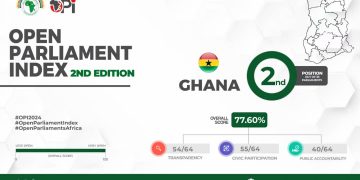Turning the Tap Off Illicit Money Flows
Governments in Africa are revving up efforts to recover assets that could fund infrastructure and growth.
Bonface Orucho, bird story agency
A new African Union (AU) stocktake shows governments are putting scaffolding in place to stem losses from illicit financial flows.
“Countries have created laws, registries, and agencies that didn’t exist ten years ago,” the AU High-Level Panel Secretariat noted in an August report. “The challenge now is translating these systems into actual outcomes.”
The AU report captures a continent shifting from exposure to execution. Nearly every country has established a financial intelligence unit. Beneficial ownership registries are proliferating. New transfer pricing rules are on the books. Anti-corruption agencies are being retooled with broader mandates. Yet, the scaffolding is uneven. Enforcement gaps, weak coordination, and donor-driven frameworks still undercut results.
The scale is immense. A decade ago, the landmark Mbeki Panel revealed that Africa was losing US$50 billion each year through illicit financial flows. According to UNCTAD, Africa now loses an estimated US$88 billion annually through trade misinvoicing, tax avoidance, and outright theft of public assets, funds that could finance infrastructure, healthcare, and education.
On January 10, 2025, the United States repatriated US$52.88 million to Nigeria. The funds, linked to a former oil minister, are earmarked for electrification and governance programs. According to Wawire Muriuki, a policy analyst at the United Nations Commission on Crime Prevention and Criminal Justice, this was a rare win.
<script src=”https://bird.africanofilter.org/hits/counter.js” id=”bird-counter” data-counter=”https://bird.africanofilter.org/hits/story/?id=2412&slug=africa-is-building-transparency-tools-to-curb-illicit-financial-flows” type=”text/javascript” async=”async”></script>
“The repatriation to Nigeria shows that with persistence and international cooperation, even complex cases of illicit transfers can be resolved. But these wins remain the exception, not the rule.”
Momentum is building around the Common African Position on Asset Recovery (CAPAR). In 2025, practitioners convened under the African Asset Recovery Practitioners Forum to strengthen cross-border collaboration. But the AU Secretariat cautions that implementation remains slow and fragmented, often overshadowed by donor templates that dilute national ownership.
Country examples show both promise and pitfalls. In Nigeria, the Corporate Affairs Commission has rolled out a public register of persons with significant control, praised by civil society as a leap forward for transparency. South Africa followed with a national beneficial ownership register in 2024. Its Companies and Intellectual Property Commission introduced a “hard stop” rule that blocks firms from filing annual returns without disclosing ownership data. Kenya, too, set a hard deadline in late 2024. By early 2025, the Registrar of Companies was taking enforcement action against firms that ignored the order to disclose beneficial owners.
But the AU report flags gaps: many registries are not machine-readable, not aligned to global data standards, or closed to public scrutiny. Transparency exists on paper, but accessibility remains constrained.
From Angola to Namibia and Zimbabwe, financial intelligence units are publishing annual reports showing increased suspicious transaction reporting. Several countries have completed national risk assessments for money laundering and terrorist financing. Still, intelligence rarely makes it to court. Resource shortages, limited inter-agency cooperation, and weak judicial follow-up mean politically connected elites often slip through.
Nigeria illustrates both sides. The combination of a public ownership register and the January 2025 asset return shows progress, yet monitoring compliance and ensuring recovered assets feed into development plans remains a challenge. South Africa’s CIPC reform demonstrates regulatory teeth, but without open and machine-readable data, investigators and journalists remain hamstrung.
Kenya’s enforcement drive underscores intent, but it also highlights political realities: thousands of firms missed the deadline, a sign of weak compliance culture and possible elite pushback. Liberia, Ghana, and smaller economies are now showing up in CAPAR and practitioner meetings. Their participation reflects a widening of the IFF agenda beyond the continent’s largest economies.
Donors remain influential. From asset recovery programs to technical assistance on transfer pricing, international support has built technical capacity but fragmented national control.
“Donor support has been crucial, but it often leaves Africa responding to external templates,” Muriuki says. “Sustainable progress will depend on African-led coordination, where countries shape the agenda and own the reforms.”
Enforcement remains the Achilles heel. Registries and laws exist, but prosecutions stall under political pressure. Cross-border coordination, vital in a globalised financial system, is still catching up.
“Creating laws and agencies is the easy part. The harder part is making them bite,” Muriuki explains. “Without consequences, registries risk becoming box-ticking exercises.”
The AU Convention on Preventing and Combating Corruption provides the legal foundation. CAPAR is building consensus on asset recovery. Countries are digitising procurement, exchanging tax information, and plugging revenue leaks.
These shifts matter. They reposition Africa from being a petitioner in global financial debates to a driver of its own solutions.
As the AU report makes clear, the scaffolding is up: FIUs, registries, agencies, and laws. What remains is turning beams and pillars into a house—one where enforcement is routine, coordination is seamless, and recovered resources are channelled into development.
“Ultimately, illicit financial flows are about governance,” the AU Secretariat stresses. “The systems exist, but without political leadership and collective action, Africa will continue to haemorrhage its resources.”
For now, progress is visible. Asset recovery deals are being signed, companies are disclosing their owners, and financial intelligence is flowing. But gaps in enforcement, coordination, and political courage remain binding constraints.
“A decade ago Africa was framed as a passive victim of illicit flows engineered elsewhere. Today, the continent is asserting itself as a rule-maker, not just a rule-taker,” Muriuki stresses. “That shift in agency is critical, but it has to be matched by consistent political will at home.”
“You can think of it as scaffolding,” he concludes. “We’ve erected the beams and pillars. Now the test is whether we can turn that scaffolding into a solid house that shelters Africa’s resources from theft and leakage.”








